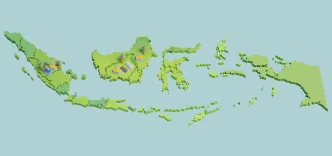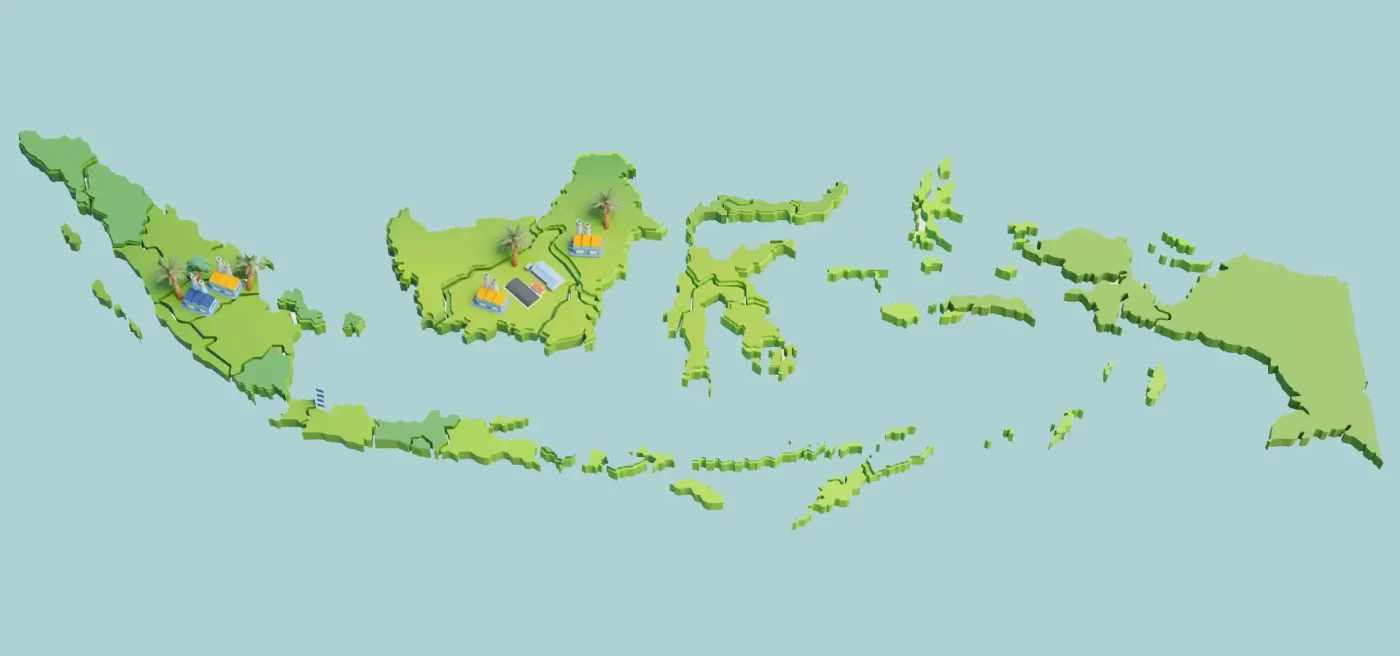Indonesia, the world’s largest producer of palm oil, has increased its export levy on the commodity to 10%, a move aimed at bolstering domestic biofuel production and supporting ambitious replanting efforts for smallholder farmers. Announced in late 2024, the policy shift reflects Jakarta’s balancing act between maintaining its dominant position in the global palm oil market and addressing long-standing environmental concerns tied to deforestation and unsustainable farming practices.
A Boost for Biofuel Ambitions
The decision to hike the export levy comes as part of Indonesia’s broader strategy to expand its biodiesel program, which mandates blending palm oil with diesel to reduce reliance on fossil fuels. The funds raised from the increased levy—projected to generate billions of rupiah annually—will be channeled into subsidizing biodiesel production and stabilizing domestic supply chains. An official from the Ministry of Energy and Mineral Resources stated, “This levy adjustment is critical to ensuring we meet our renewable energy targets while supporting local industries”.
Indonesia’s biodiesel mandate, currently at a 35% blend (B35), is one of the most aggressive in the world, with plans to scale up to B40 by 2026. The policy not only aims to cut greenhouse gas emissions but also to absorb excess palm oil production, which often faces volatile international demand due to sustainability concerns in key markets like the European Union. By redirecting a portion of export revenue into biofuel subsidies, Jakarta hopes to create a more resilient domestic market for its farmers, many of whom struggle with fluctuating global prices.
However, the levy increase has sparked mixed reactions. While some industry players welcome the focus on biofuels, others worry about the impact on export competitiveness. “Higher levies could make Indonesian palm oil less attractive compared to competitors like Malaysia” said a Jakarta-based trade analyst. If confirmed, this could lead to a dip in export volumes, particularly to price-sensitive markets such as India and China, which together account for over 40% of Indonesia’s palm oil shipments.
Replanting for Sustainability
A significant portion of the levy revenue will also fund replanting initiatives, targeting smallholder farmers who manage nearly half of Indonesia’s palm oil plantations. Many of these plantations, spread across Sumatra, Kalimantan, and Sulawesi, are over 25 years old and past their peak productivity. The government estimates that rejuvenating these estates could boost yields by up to 30%, while also encouraging sustainable practices to meet international certification standards like those set by the Roundtable on Sustainable Palm Oil (RSPO).
The replanting program, which has been underway since 2017, has faced challenges, including funding shortages and logistical hurdles in remote areas. With the new levy, officials aim to accelerate the process, targeting 180,000 hectares annually. “We want to ensure smallholders aren’t left behind in the transition to sustainable palm oil” said a spokesperson for the Ministry of Agriculture. The initiative includes providing high-yield seedlings and training on eco-friendly cultivation methods, a critical step given the global scrutiny over deforestation linked to palm oil expansion.
Environmental groups, while cautiously optimistic, stress that the success of replanting hinges on strict oversight. Past efforts have sometimes led to further land clearing rather than rehabilitation, exacerbating deforestation in biodiversity hotspots like Borneo. “If the funds are misused, this could do more harm than good” warned a representative from a local conservation NGO. For now, questions remain about how effectively the government will monitor and enforce sustainable practices among millions of smallholders.
Economic and Global Implications
The export levy hike, while designed to fund domestic priorities, arrives at a time of economic uncertainty for Indonesia. Palm oil accounts for roughly 20% of the country’s export earnings, with shipments valued at over 500 trillion rupiah (US$32 billion) in 2023. The increased levy—applied on top of existing export taxes—could strain trade relations with importing nations already critical of Indonesia’s policies. The European Union, for instance, has imposed restrictions on palm oil imports due to deforestation concerns, and additional costs may further dampen demand.
Domestically, the policy is a gamble. Smallholder farmers, who often operate on thin margins, may benefit from replanting support but could also face short-term losses if export markets shrink. In regions like Riau and Central Kalimantan, where entire communities depend on palm oil, any disruption could have ripple effects on local economies. “We need clarity on how the funds will reach us” said a farmer from Sumatra, echoing concerns about bureaucratic inefficiencies that have plagued past government programs.
Analysts also point to potential inflationary pressures. Palm oil is a staple in Indonesian households, used in everything from cooking oil to processed foods. Redirecting supply to biodiesel could tighten domestic availability, driving up prices for consumers already grappling with rising costs. The government has pledged to monitor price stability, but skepticism persists, particularly among urban low-income families who spend a significant portion of their income on food.
Balancing Growth and Green Goals
Indonesia’s palm oil sector has long been a double-edged sword—fuelling economic growth while drawing international condemnation for its environmental toll. The country has lost millions of hectares of rainforest to plantation expansion since the 1990s, contributing to carbon emissions, habitat loss for endangered species like the orangutan, and conflicts with indigenous communities over land rights. In response, Jakarta has introduced measures like a moratorium on new plantation permits and stricter certification requirements, though enforcement remains inconsistent.
The levy increase is the latest in a series of reforms aimed at aligning the industry with global sustainability standards. By tying export revenue to replanting and biofuels, the government hopes to signal its commitment to greener practices without sacrificing economic output. Yet, the road ahead is fraught with challenges. “Sustainability isn’t just about policy—it’s about changing mindsets at every level of the supply chain” said an environmental economist based in Bogor.
International stakeholders are watching closely. The EU, which has threatened further trade barriers if deforestation continues, may view the levy as a step forward, provided it translates into measurable outcomes. Meanwhile, competitors like Malaysia could capitalize on any missteps, offering lower-priced palm oil to capture Indonesia’s market share. For now, the policy’s impact on trade balances and environmental metrics remains speculative, with data likely to emerge over the next 12 to 18 months.
Public and Political Sentiment
Public opinion on the levy hike is divided. In palm oil heartlands, farmers and local leaders have expressed tentative support, hopeful that replanting funds will modernize aging estates. However, in urban centers like Jakarta and Surabaya, consumers are wary of potential price spikes for everyday goods. Social media platforms reflect this tension, with some users praising the government’s green initiatives while others question whether the burden will fall disproportionately on ordinary citizens.
Politically, the policy has reignited debates about resource management and economic equity. Opposition figures argue that the levy prioritizes corporate biofuel interests over smallholder welfare, while ruling party officials defend it as a necessary step toward energy independence. With national elections on the horizon in 2029, the palm oil debate could become a flashpoint, particularly in rural constituencies where votes often hinge on agricultural policies.
As Indonesia navigates these complex waters, the success of the export levy hike will depend on execution and transparency. Will the funds truly reach smallholders and advance sustainability, or will they be lost to inefficiency and competing interests? For now, the world’s top palm oil producer stands at a crossroads, with both its economic future and environmental legacy hanging in the balance.















